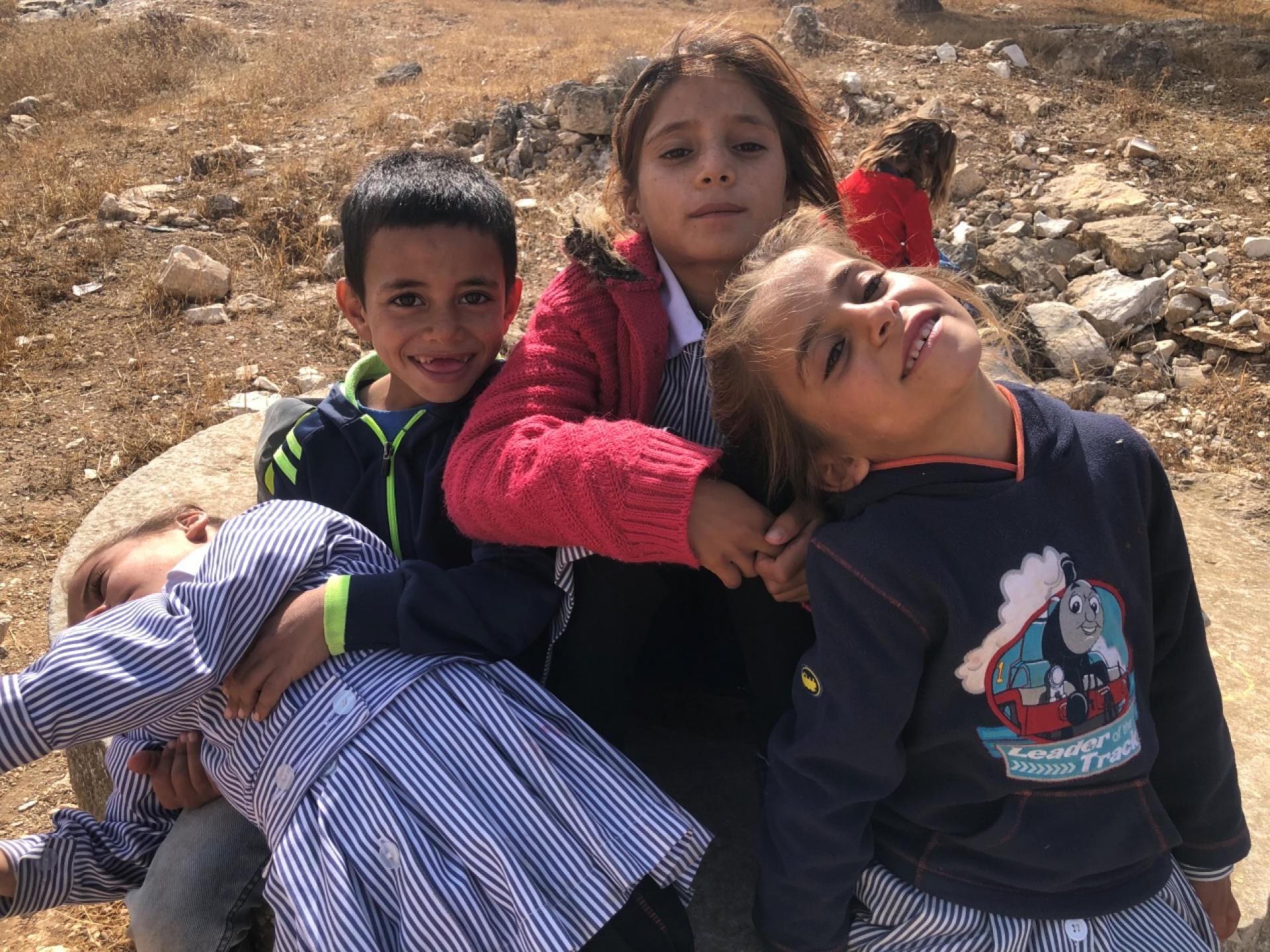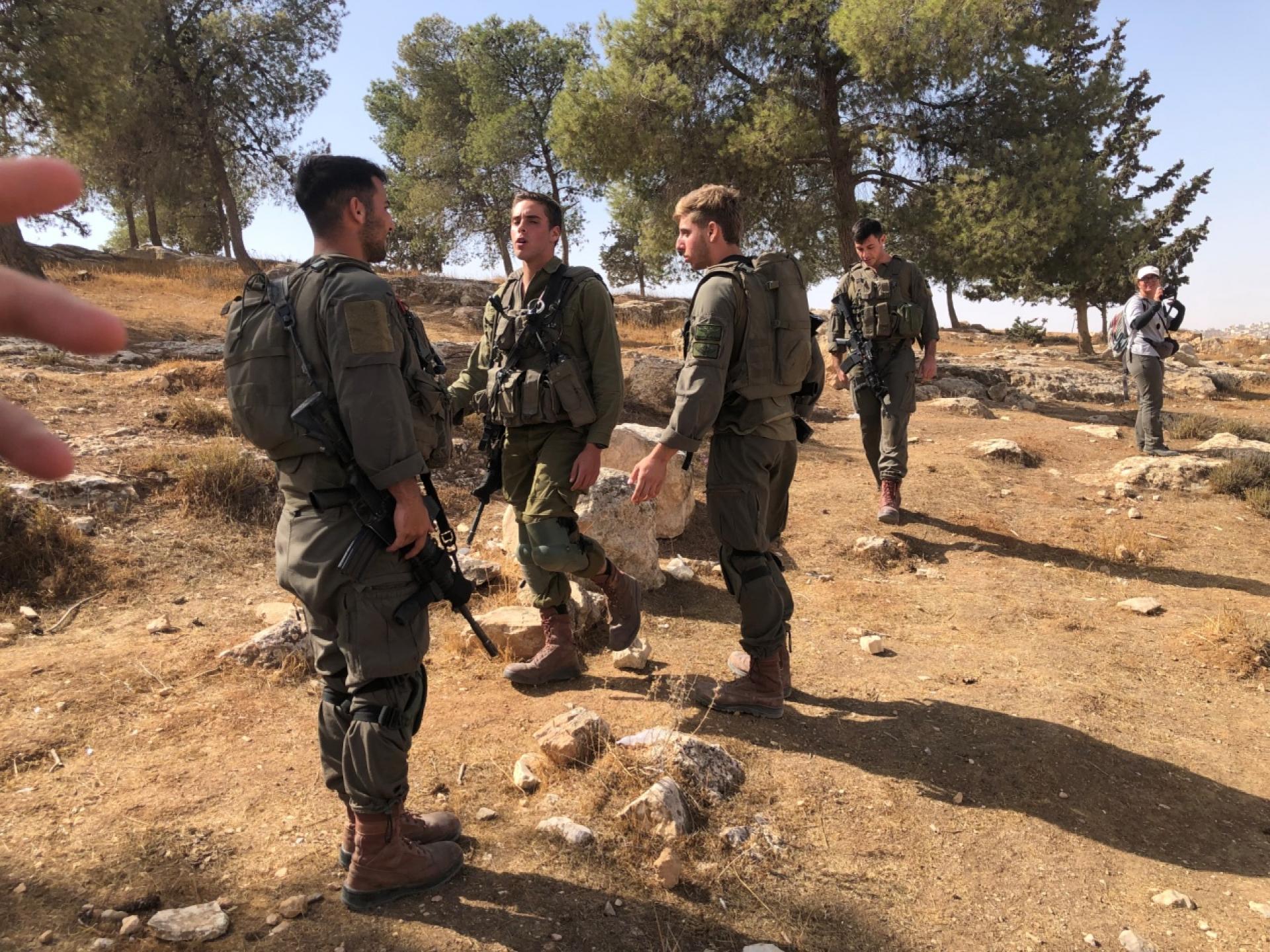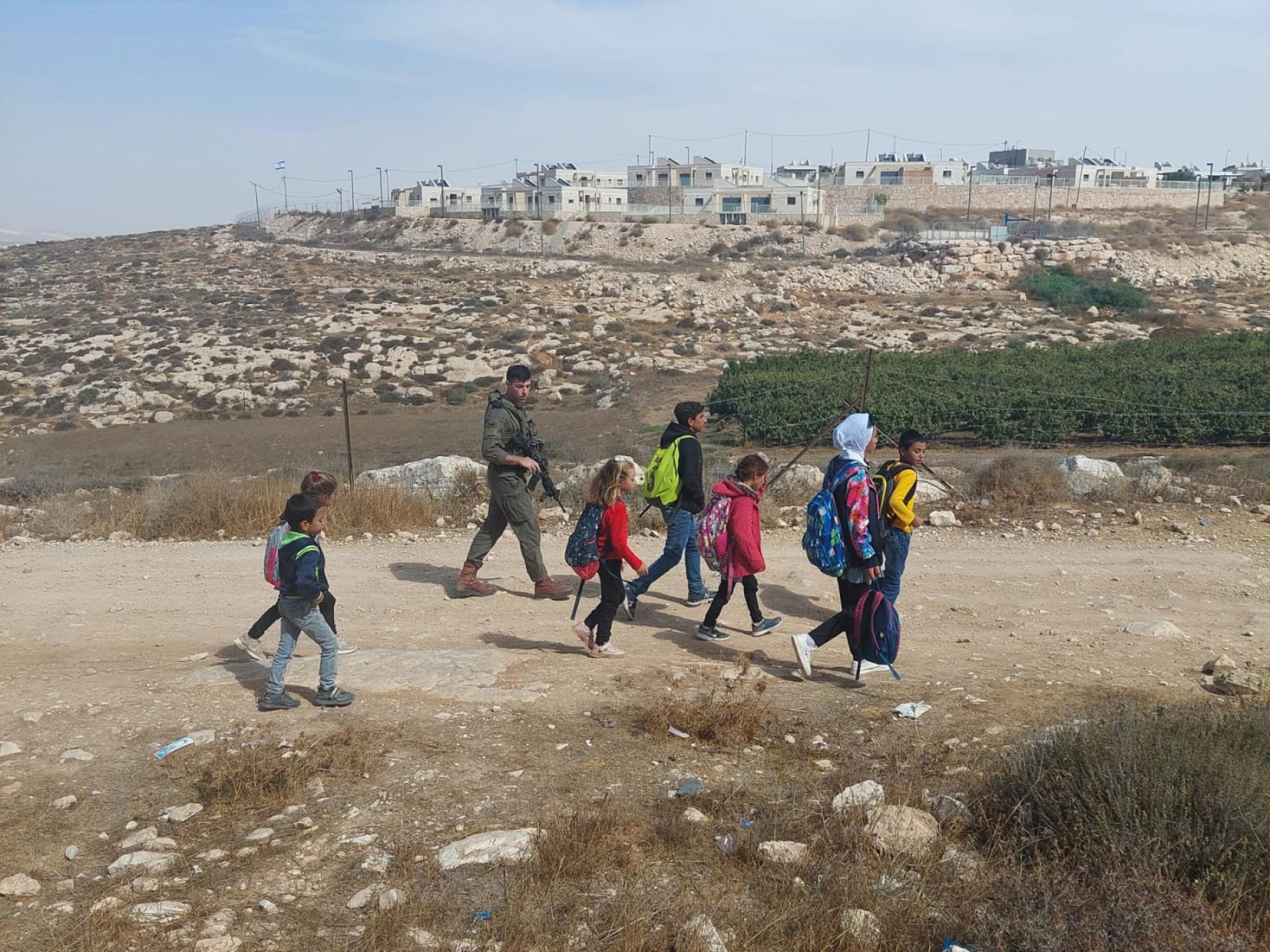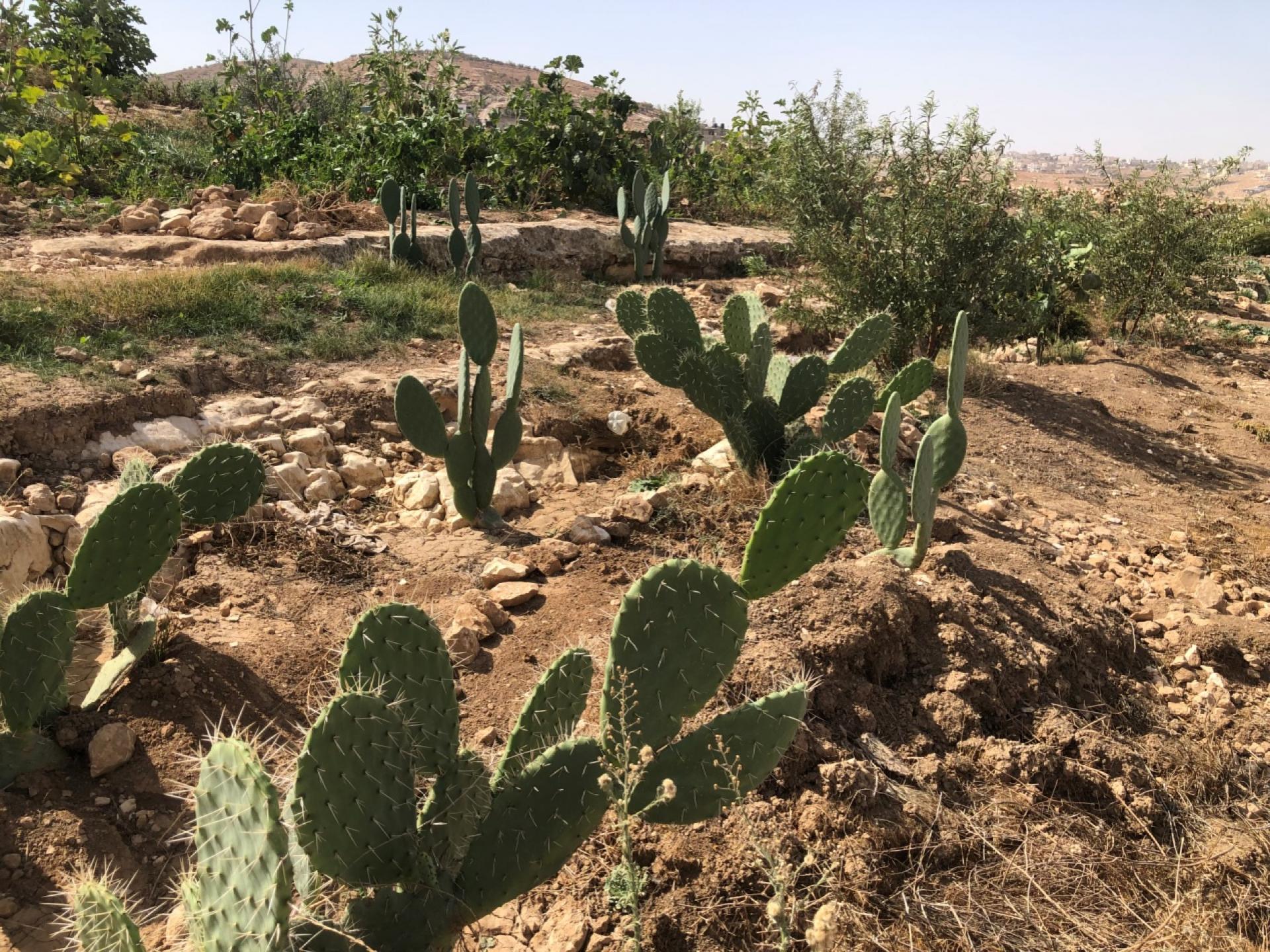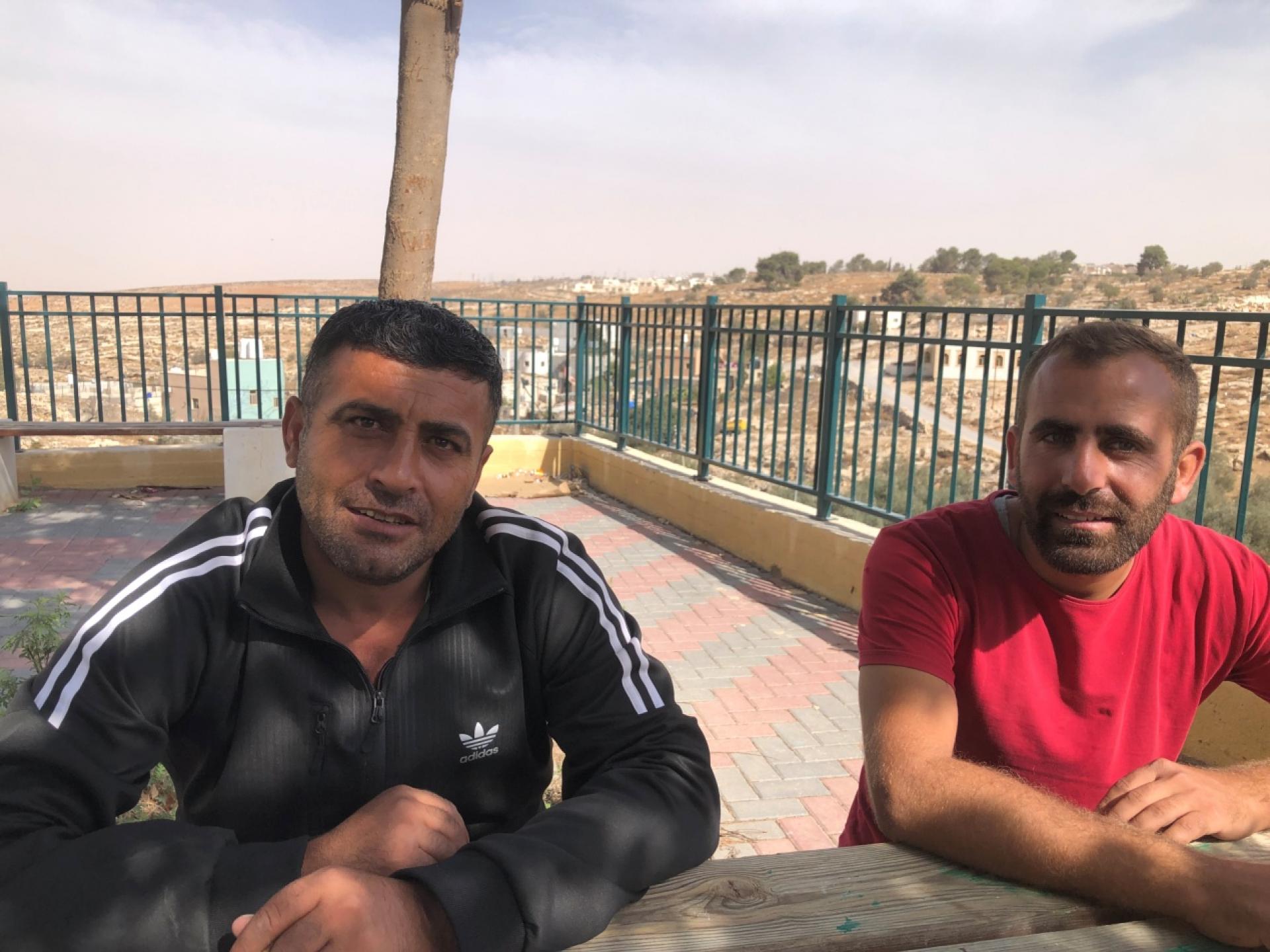Masafer Yatta - the daily journey of children to school escorted by soldiers
We drove to meet the children making their daily walk to school, escorted by soldiers.
When we reached Be’er Sheva we learned there was a general strike on the West Bank in response to the murder of five Palestinians in Nablus.
The children reached the school and returned home. Since the Umm Tuba children come from the village on foot, accompanied by soldiers, they sat waiting for the soldiers at the meeting point in order to return to the village.
About eight children, 1st through 9th graders, sat on a round concrete structure and waited. A few Italian volunteers from A-Tawwani waited with them.
A young shepherd, a settler, arrived with a flock of sheep. He didn’t look at us, but when he felt the others were too close to him he said, “Get away from here.” He didn’t respond to attempts at conversation.
After a while two settlers arrived, followed by soldiers in a command car that brought the soldiers who were to escort the children home. It stopped about one kilometer away from us.
Additional soldiers arrived who immediately prepared to chase us away. They told us how much time we had to leave.
We asked to see the order declaring the site a closed military area, on which they based their order to leave. It took some time for the document they were waiting for to reach one of the soldier’s WhatsApp account. I asked to see it. But it wasn’t possible. (They had explained on another occasion that the form was supposed to specify the time during which the area is defined as closed for military purposes, as well as the reason.) A young man from among the Tawwani volunteers tried to read the text but found no reference to our situation. It was a standard form, with no relevant details. The children had already begun walking to the village, escorted by one soldier.
All the players were now in place, and each played their appointed role. The armed soldiers ordered us categorically to leave within five minutes. One of us explained pretty convincingly that what they are doing is fundamentally dishonest and has no connection to protecting the homeland. They declaim a text they’ve been taught in which they have an exaggerated belief. Their goal, they explained, is to avoid friction between the two sides. (The sides: children and people opposed to the occupation, mostly women; a shepherd and a jumpy settler who did not know whether he was a security coordinator or something else, very angry, repeating cliches; a group of soldiers). The soldiers, some amused and some taking themselves seriously escort us to an imaginary line located next to the first house in A-Tawwani.
The thought shadowing this entire situation has to do with the kind of solution the government provides: children escorted by soldiers. Those who are violent continue their daily violence against the whole region, a military ready for their assistance in every case assigns two daily shifts of soldiers to protect the children. And perhaps they will burst into their homes after dark.
In the midst of all that was occurring, Hafez Horini appeared, the Palestinian whose arm was broken in an attempt to drive him from his land. We were, in fact, next to his lovely plot. He has fruit trees, a kind of orchard, which we hope will develop. Galia tried to speak with him. And the army really had no idea how to make us adhere to its timetable. Five minutes had already elapsed. So all of us proceeded, talking until we reached the specified line.
The soldiers turned back and we continued to Horini’s house nearby.
Later we met the chairman of the municipal council. We sat in the playground adjoining A-Tawwani’s school which serves some 200 children from the village and those nearby in grades 1 to 12.
The municipal council also comprises A-Tawwani and the same five nearby communities.
The council chairman recounted the history of the expulsions, from the decision to designate the area for military training to the recent court decision that the villages be demolished. The situation is very fluid and uncertain, and much is not being revealed. Who’ll come out on top? Where in the world will there be someone who hears and acts on another’s plea? Twenty-eight years have already passed, the demolitions continue apace, with more homes every week. On our way this morning we saw new tents beside the road. They were gone by afternoon. A bulldozer, cars, soldiers and others looked at the bare ground. We also viewed it, from the car.

